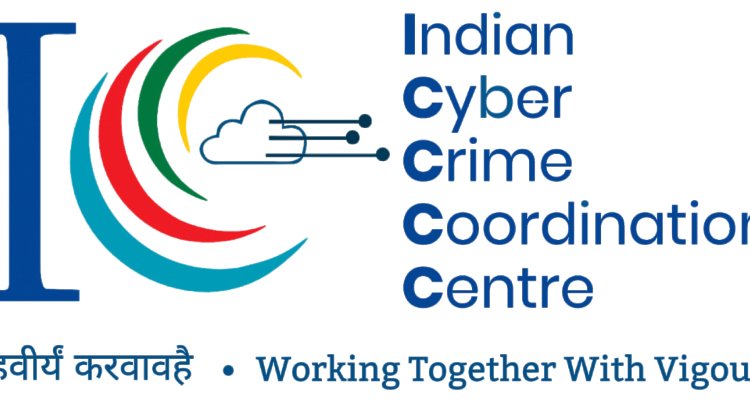Cyber Catastrophe: Company Hacked After Hiring a North Korean ‘Tech Whiz’—Betrayed from Within
A firm accidentally hired a North Korean hacker as a remote IT worker. Discover how insider threats, deception, and cyber extortion unfolded in this shocking case.
Trust is one of the main fabrics of the digital economy. Worldwide, employers use résumés, interviews and background checks to identify the best candidates for their employees. But when that trust is betrayed not by a disgruntled employee but by a foreign state-backed cybercriminal?
A disturbing example of this was brought to our attention when we discovered a company had accidentally hired a North Korean hacker posing as a long-distance IT worker. Within weeks, the so-called “contractor” used his privileged access to penetrate systems, pilfer sensitive files and ultimately demand a six-figure ransom in cryptocurrency. This troubling incident, which was first uncovered in cybersecurity investigations and has been reported extensively by international media, highlights an emerging global threat: North Korean agents penetrating legitimate businesses with remote work orders.
The Deceptive Hire

Remote work has created new opportunities for millions of workers, but it has also lowered barriers for fraudsters. In this instance, the North Korean agent provided forged credentials and a bogus employment record. As with many naive employers, the company had fallen for the ruse.
The worker's performance was sketchy at first. Tasks were continually pushed back, communications seemed not to happen or to be inconsistent, and the red flags around identity verification started to be raised — but by then it was too late. Unbeknown to the outfit, their “new hire” was already able to use his access to siphon off sensitive data.
He was eventually fired for being incompetent. But weeks later, the firm received a jarring message: a ransom note along with stolen files. The hacker demanded six figures in cryptocurrency ransom, threatening to reveal company's proprietary information if payment was not made.
Stealing Data and Ransoming It from the Inside
This case is a dangerous evolution in North Korea’s attack techniques, according to SecureWorks, the cybersecurity firm that examined the hack. Previously, state-sponsored IT workers were generally known for “earning salaries” under fictitious identities and transferring money to Pyongyang. But another has made clear a shift: Bad actors — apart from just cashing their paychecks — are carrying out data theft, stealing intellectual property and practising extortion, even in some cases threatening violence that doesn’t appear to be empty.
Compounding the situation is the time length of the procedure. The hacker was able to work inside the company for four months up until his termination, during which time he was extracting sensitive information. This illustrates that Insider threats (especially when pretending to be honest employees) can get through even the best perimeter defences.
The Bigger Picture: An International IT Army This is not an isolated development. Reports in intelligence and criminology show that all over the planet many North Koreans are posing as independent IT workers, disguised among regular IT workers and students. They utilize stolen or counterfeit information to browse jobs. Usually, they are relying on intermediaries (e.g., laptop farms) that operate in China or Russia. The statistics are remarkable. An investigative report by Axios in 2025 indicated the hiring of workers of North Korea origin in almost all the Fortune 500. More often than not, these designates are doing more than simply drawing salaries—setting up backdoors into private corporate systems, stealing confidential secrets, and inflicting ransomware on targets. According to the U.S. government, these cash inflows end in the North Korea storage cisterns and ammunition factories, indirectly supporting the Hezbollah regime and making the latter less and less dependent on foreign donations.
Enforcing the Law: Governments around the world have henceforward started responding. In the middle of 2025, the U.S. Department of Justice announced the largest-ever operation targeting the underground business as they seized hundreds of laptops, bank accounts, and fake websites that were run by North Korea remote workers. More than 90 U.S. companies were victims of these malign activities. Furthermore, it became clear that many of the said foreign actors had outright helped the perpetrators of the swindles. While not many legal residents and citizens of the USA were prosecuted, some other Americans were nevertheless imprisoned. They provided infrastructure, documentation, or money laundering services that enabled North Korea agents in the role of freelancers to pose as legal freelancers.
Lessons for Businesses: This case should not just be a bell that warns others to stay off the road: it is a serious call that announces real danger. Businesses must also understand that cybercriminals of today might not just be random people across the universe with totally unknown identities. Otherwise, sometimes they are even in their own companies; these hired contractors are in the form of a virtual worker that often has access to the internal communication platform, email, and cloud servers, and are hired through the HR system with an apparently usual hiring process. Here are key lessons for businesses:
1. Rigorous Vetting Processes Old-style checks are losing their functionality, so the time of identity verification becomes ripe. Enhanced versions of criminal background checks, coupled with verification measures, such as mandatory use of video interviews, cross-referencing other forms of identity, and checking location data, should be mandatory procedures for all employers.
2. Spot the Red Flag Untruthful personal data, like changing personal information, resistance to take part in video interviews, and a possible number of equipment strikes, are all red flags that should be caught instantly.
3. Limit Access Early. Only learn from others' experience, but not from others' mistakes. This is one of the important takeaways for new hires. Firstly, provide only minimal and controlled access until their level of trust is similar to yours and their character is established. Hence, privilege should be gained over time rather than one day, as being appointed.
4. Continuous Monitoring Employers should not only implement but also rely on data monitoring devices for keeping tabs on data exfiltration, uncommonly large login activity, and skyward moving files. Perimeter defences cannot fulfil all business needs without insider threat detection.
5. Report and Collaborate Authorities inform the companies not to be afraid of their reputation being harmed in case they report the data breaches. Instead, for cybersecurity, the sharing of intelligence is the basis of collective defence and stops other organisations from being the scandalous "celebrities."
The Human Side of Cyber Conflict: Such a case is no less a depiction of who the people behind the cyber fight are. The main part of operations is done by highly skilled IT pros, who are being played by the regime into these kinds of schemes. They are an organ of the system with the purpose of making illegal money; they are not freelance agents who pursue their own chances. Still, for business enterprises globally, the results remain similar: data stolen, damage done to the reputation, and financial losses in the pockets of those who bear the brunt. It is the resemblance of acts, which are state-directed and others which have criminal motives, that makes this a hard-to-stop threat.
Conclusion: A Breach of Trust. By subcontracting a North Korea hacker to do their work, the employer of the cheating labour market breaker discovered a significant lesson: sometimes you might be attacked through the window, not necessarily from the front door. Maybe they come in through the HR office. While companies adopt the remote work approach and large talent pools, precautions should be kept at high levels. The hosting of online criminals should not be something that businesses do lightly. However, the convenience of online hiring must be contrasted with the stringent due diligence. Otherwise, the next “trusted employee” could be a cyber freelancer working for the most reserved governments. This vicious circle in cybersecurity must serve to remind us as follows: once built, trust can be a killer, with nothing to save you against the possible repercussions of the mistake you once put your trust in.
Follow cyberdeepakyadav.com on
Facebook, Twitter, LinkedIn, Instagram, and YouTube
What's Your Reaction?

























